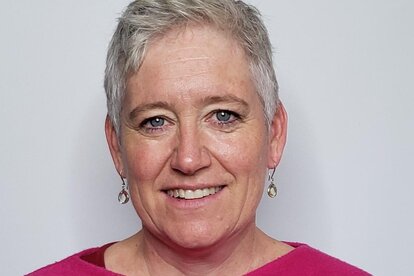The UN wants to establish an alternative to gross domestic product (GDP) this year because the metric has long been outdated in relation to social and environmental challenges. Instead of measuring sustainable progress and inclusive welfare, GDP is an indicator of purely monetary economic growth and supposed prosperity. A rethink is needed.
Criticism of the metric is almost as old as GDP itself. US politician Robert F. Kennedy said in a speech in 1968: “Gross domestic product measures everything except that which is worthwhile.” In fact, there are serious doubts as to whether GDP reflects the welfare of a society.
GDP highlights the performance of an economy from a purely monetary perspective. Voluntary work, unpaid and unremunerated care work and value creation in the informal economy, which is still widespread in many low- and middle-income countries, are not captured by GDP. If, for example, children are cared for by family instead of being sent to a paid after-school care center, GDP decreases. Or, as Mariana Mazzucato, Professor of Innovation Economics at the University College London, once put it at the WEF: “If you marry your cleaning lady, GDP goes down. What does that tell us?” It says that only services that have a price tag are counted when calculating GDP.
At the same time, “negative” events increase GDP: Costly clean-up work after an oil tanker accident increases GDP, as does costly reconstruction after extreme weather events such as hurricanes and floods. Even a higher crime rate can have a “positive” impact on GDP, for example through increased police operations and damage claims. However, the quality of products or services is not taken into account: GDP does not care whether a T-shirt is produced under humane conditions or not. Finally, the measured value, which is also used as a per capita measure, says nothing about the distribution of income or inequality in a society.
Alternatives to GDP
In view of the dramatic setbacks in the implementation of the 2030 Agenda, GDP as a measure of progress, welfare and quality of life is downright misleading and harmful. But what alternatives are there? After the 2008-2009 financial crisis, the Organization for Economic Cooperation and Development (OECD) set about supplementing GDP. The OECD decided that education, health and climate protection should also be included in order to guide policy. This resulted in the comprehensive Better Life Index. It enables a country comparison based on 11 topics, including housing and income opportunities, education and civic engagement, work-life balance, health and the environment. It did not prevail.
Better known is the Human Development Index (HDI) of the United Nations Development Program (UNDP) from 1990. It includes life expectancy, education and GDP per capita. Today, there is hardly a country analysis that does not refer to the HDI value. After 30 years, the measure was supplemented with the “planetary pressures-adjusted Human Development Index” (PHDI). This also takes into account resource consumption (water consumption, deforestation, material footprint) and environmental pollution (CO2 emissions, nitrogen use). Unsurprisingly, countries such as the USA, Australia, Saudi Arabia, Qatar and Singapore are slipping down in the adjusted index.
Switzerland, on the other hand, is ranked first in the adjusted HDI – which also highlights the weakness of the PHDI: the calculation of the “fourth dimension.” For example, the indicator for calculating per capita CO2 emissions excludes import and consumption-related emissions and only includes emissions that occur within the country's borders. In the case of Switzerland, however, these only account for a third of total emissions, which gives a distorted picture of the actual environmental impact. Despite this shortcoming, the further development of the HDI is to be welcomed.
The Multidimensional Poverty Index, which covers 110 developing countries, is less well known. The index shows the whole range of social deprivation, including food security, education, life expectancy, housing and access to toilets, electricity and drinking water. Another little-known fact is that China is experimenting with the Gross Ecosystem Product, whereby the value of nature is to be included in the calculations by assigning a market price to ecosystem services.
And finally, there is Gross National Happiness, an official measure of the small Asian state of Bhutan. This is intended to reflect the overall well-being of the population, including material prosperity as well as mental well-being.
Negative effects on other countries remain underexposed
The Better Life Index or the (expanded) Human Development Index are a well-intentioned addition to GDP. However, they have a common shortcoming: They only focus on the situation within a country. In the Sustainable Development Goals Index (SDG Index), for example, Switzerland is ranked 15th out of 166 countries. However, the spillover score, which is also shown, is unacceptably high: 157th out of 166 countries assessed. This means that Switzerland's actions hinder the sustainable development of other countries.
Among other things, arms deliveries to autocratic countries such as Saudi Arabia are responsible for this. The Swiss financial center as a haven for tax evaders. Multinational companies that use profit shifting to optimize taxes at the expense of the poorest. And major Swiss banks that earn millions by supporting and financing climate-damaging companies in the oil, coal and gas sectors.
A new welfare indicator beyond GDP
Humanity urgently needs a way out of the obsession with growth, which takes too little account of social, ecological and human losses. A realistic assessment of prosperity and progress is a prerequisite for the necessary transformation of the world to succeed and for the UN's Sustainable Development Goals to be achieved. At the Summit of the Future, which is part of the UN General Assembly in fall 2024, UN Secretary-General António Guterres will show what a welfare indicator beyond GDP could look like. One hundred and ninety-five governments will wrestle with how to measure what really counts for inclusive welfare and sustainable progress.
Relevant to the discussions are the SDG Index, with its negative spillovers to other countries, and the Inclusive Wealth Index launched by the United Nations Environment Programme UNEP in 2012, which measures a nation's ability to create and sustain human well-being over time. The debate is likely to be an important step towards a new economic system that puts nature and people back at the center instead of (short-term) profit and the wealth of individuals.



